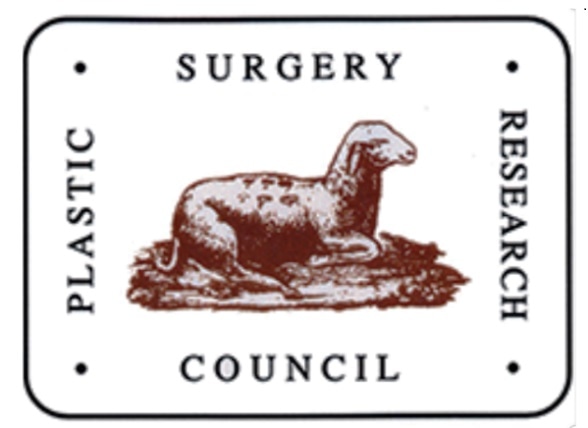May 3 2019
What:
The Plastic Surgery Research Council (PSRC) focuses on awareness surrounding compelling research relating to the field of plastic surgery.

Credit: Plastic Surgery Research Council
This year, the PSRC annual meeting will take place in Baltimore, bringing together hundreds of researchers to share the latest on the field of reconstructive surgery. Justin Sacks, M.D., M.B.A., chair of the PSRC and director of oncological reconstruction at Johns Hopkins, will host the start of the conference, called the Local Program, at The Johns Hopkins Hospital. A variety of Johns Hopkins experts will present their research at the remainder of the conference, to take place at the Hyatt Regency at the Baltimore Inner Harbor. All reporters interested in attending are welcome; please contact us at [email protected].
Full conference agenda and information can be found here.
When:
Thursday, May 2, through Sunday, May 5, 2019
Where:
Local Program, Thursday, May 2, 7–11 a.m.
The Johns Hopkins Hospital, Chevy Chase Bank Auditorium (Zayed 2117) in the Sheikh Zayed Tower
1800 Orleans Street, Baltimore, Maryland 21287
Scientific Sessions
Hyatt Regency, Baltimore Inner Harbor
300 Light Street, Baltimore, Maryland, 21202
Some sessions of interest:
Ex Vivo Expanded Regulatory T Cells Combined with Short-Term Costimulation Blockade Prevent Rejection of Vascularized Composite Allografts
Thursday, May 2, 2:50 p.m. EST
After extreme tissue loss, reconstructive transplantation has proven therapeutic, but requires long-term immunosuppression medication to prevent transplant rejection. In hopes of preventing the body’s immune response from rejecting the transplanted tissues while lessening the requirement for drugs, researchers are using expanded T cells taken from the body coupled with a chemical that will modify the T cell response. The results are being tested using a rodent hind limb transplantation model. This model has been successful thus far in preventing rejection of the transplant tissue as well as longer skin graft survival without maintenance therapy.
Two-Stage Prosthetic Prepectoral Breast Reconstruction: A Comparison of Tissue Expansion with Carbon Dioxide and Saline
CONCURRENT SESSION 2: CLINICAL
Friday, May 3, 8:24 a.m. EST
This study examines how Aeroform — a breast tissue expander filled with carbon dioxide — can be used for breast tissue reconstruction using a hand-held remote, without the use of a needle. Johns Hopkins Medicine plastic surgery resident Karan Chopra and his colleagues determined that women who underwent a mastectomy and received Aeroform expanders as opposed to saline tissue expanders had a 100 percent successful treatment outcome, compared with 94 percent in the groups they examined with saline expanders. Additional advantages when using the Aeroform device for prepectoral breast reconstruction include reduced infection rates, lower cost and fewer follow-up appointments.
Three-Dimensional Scaffold-Free Spheroids with Fibroblast/Macrophage Co-Culture for In Vitro Fibrosis Modeling
Friday, May 3, 1 p.m. EST
Plastic surgery researchers will discuss how the team developed and used a 3D, scaffold-free spheroid system developed from human fibroblast cells called spherical micro-tissue, which mimic actual tissues. When grown in appropriate conditions, the fibroblast cells converge into lumps, or spheroids, which can then be used to design surgical implant material, develop medications and screen for fibrosis. When treated with immune cells, the spheroids are able to initiate an immune response similar to that seen in the body. This method showed “that fibroblasts in spheroid had higher expression levels of fibrosis genes compared to the 2D monolayer control 3D.” The model reacted as expected to a variety of new anti-fibrotic drugs and screening in comparison to methods that are currently used.
The Effect of Padded Adhesive Dressings and Body Position on Sacral Interface Pressure
Friday, May 3, 2:04 p.m. EST
During surgery or in the inpatient setting, padded adhesive is used in hopes of reducing pressure ulcers or skin problems. Johns Hopkins Medicine research fellow Michelle Seu will talk about how padded adhesive bandages used on surgical sites to reduce hospital-acquired pressure ulcers may prove beneficial in decreasing pressure on the sacrum and spinal column, based on the patient’s positioning. Researchers examined pressure on the sacrum as well as the patient’s body mass index to determine results.
Minimizing Implant Infection and Capsular Contracture Through the Use of Antibiotic-Eluting Nanofiber Coatings
Saturday, May 4, 8:08 a.m. EST
Bacterial contamination following implant-based soft tissue reconstruction contributes to significant health care costs, patient complications and sometimes death. In an effort to reduce the incidence of infection, Johns Hopkins plastic surgery resident Bartlomiej Kachniarz and his colleagues designed a nanofiber-hydrogel composite sheet device that absorbs antibiotics and tested it in a rodent implant model to see how well it could work. The nanofiber hydrogel device contributed to a reduction in soft tissue infection, implant exposure and peri-implant capsule formation.